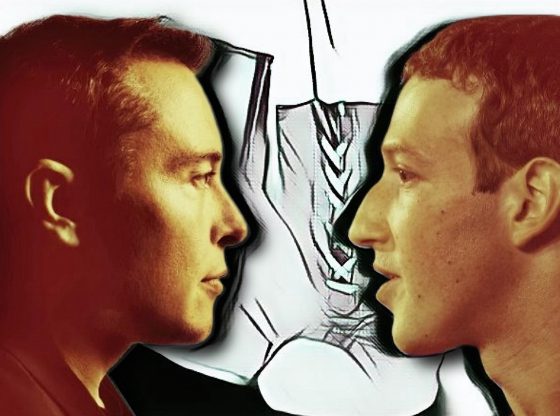This week, James O’Keefe’s new book, American Muckraker, was released. I was fortunate to receive an advance copy. It’s his third book and I’ve now read them all.
As a point of disclosure, I should mention that I served as the original Chairman of the Board of Project Veritas when James started the organization in 2010. I have also known James since the fall of 2004. We met while he was a sophomore at Rutgers University after he co-founded the Rutgers Centurion, of which he served as Editor-in-Chief. His path since that time has been nothing less than remarkable.
There are a lot of people who have become famous only to have ghostwriters pen their books. That’s not James. He has always been a writer. While leading and growing Project Veritas into a well-known news organization, he spent the past five years working on this manuscript. He told me he wrote every word himself. Even after his editors took out words, he added some of them back in.
James’ chapters are each themed on important aspects of how we should understand journalism and the journalist, and he has a particular focus on the “muckraker,” which is a person who searches for and tries to expose real or alleged corruption, scandal, or other wrongdoing.
American Muckraker talks honestly about muckraking. It is not easy. “The muckraker must be prepared to suffer,” he tells us. However, “reborn through baptism by fire, he is invigorated by the knowledge that he is no longer a slave to fear.”
There is no doubt that my friend James O’Keefe has been on one heck of a fearless journey since the day I met him nearly 18 years ago. I have not only admired him because of what he has accomplished, but because of the person he consistently tries to be each day. And one element of his character is his devotion to so many works of fiction and nonfiction. He is constantly reading.
One can’t come away from this work without realizing how intellectually grounded James is. On page after page, there are footnotes referencing the works he is citing throughout this book.
American Muckraker needs to be included in the syllabus for every college of journalism student in every American college and university – even if the instructors or students do not particularly like James or disagree with his style. His cutting edge perspective needs to be discussed.
One thing James understands well and makes a great case for in this book is that the medium is the message. American Muckraker walks you through every type of journalism done in human history and how each new style was an innovation from previous types of journalism. This book includes how journalism has evolved from the invention of the printing press to the adoption of the telegraph, telephone, radio, television, the personal camcorder, the smart phone, and the hidden button camera that so many undercover Project Veritas reporters use today to expose corruption.
As the history of journalism has unfolded, James points out that “a constant struggle emerged in American journalism between the forces that want to control and the forces that want to expose.”
One constant in the history of innovation is the resistance to change – particularly by those who have a vested interest in protecting the status quo.
In the early twentieth century as muckrakers like Upton Sinclair “fought to expose injustices, the dominant media helped protect secrets … Then, as now, the media establishment resisted change,” says James.
Then something interesting happened. The establishment media voices turned on the Johnson Administration’s war in Vietnam and on Richard Nixon during the Watergate scandal. The media and its top spokesmen, like Walter Cronkite, realized through the medium of television, they had become more powerful than the military or government.
Citing journalism professors and other commentators, James shows that it was at this point that “journalism became more adversarial, more puritan, more cynical, and less tolerant. Reporters hungered after fame and sought to become stars…what was ‘supposed to be straight news’ no longer was. Journalists jumped from scandal to scandal. Private lives became public…”
However, the adversarial nature of the media became very faction oriented, even partisan, and one-sided. But, James points to the innovation of the personal camcorder that “leveled the boundaries of privacy.” In 1991, when a citizen used their camcorder to record police in Los Angeles beating Rodney King, “the world saw how devastatingly effective video could be.”
In American Muckraker, James makes a solid case for why an undercover reporter with a hidden video camera can bring equilibrium and balance power in the fields of journalism, business, and politics. “Hidden camera video, done responsibility, became the most honest medium of all,” says James. “It is the one medium that can honestly address motive.”
And this is an important distinction – because the camera can still lie. Still and moving pictures can be manipulated to lie. But that is why Project Veritas always makes the full raw footage of its undercover investigations available to the public, so they can see for themselves the truth of the matter. I think James is using this book to point out how and why undercover reporting with a hidden video camera must have its own ethical standards. He has turned down plenty of opportunities to invade the private lives of people when it was not relevant to the public interest. He has also turned down stories brought to Project Veritas that could not be corroborated by other evidence.
I have often had a front row seat – or as near as one as possible – to see James O’Keefe operate and grow his effective use of undercover video reporting. While this book shows you how well read he is, it also demonstrates how much moral standards ground him. I think any reader can actually see him working this out throughout his writing as he offers points and counterpoints on many issues related to undercover reporting – including whether that kind of reporting is deception or whether it is a method of exposing truth. And that is why this book should be read by every reporter and studied by every student of journalism, especially in an era where technology is advancing, privacy is diminishing, and censorship by Big Tech is increasing.
James O’Keefe has been on a fearless journey. And journeys require persistence. He has had great successes and many low moments. I’ve been there with him through some of them. And the one thing I’ve always admired is his persistence. His willingness to keep going and keep pursuing the truth, despite threats to his life or his reputation.
“The American muckraker understands that the path to truth includes suffering and sacrifice,” says James. This is also the path of just about every entrepreneur. But unlike most entrepreneurs, those who work in the field of journalism have an even higher responsibility. People trust them to deliver important, relevant, and newsworthy information. The journalist faces many temptations to manipulate – whether that be for political or egotistical reasons.
Near the end of this foundational work, James leaves us with a thought to ponder: “Imagine if people with real skin in the game – Big Tech insiders, Big Media journalists, Deep Staters of every variety – followed their consciences.” He adds: “If our leaders knew they were being surveilled, they would be far less inclined to surveil the rest of us.” After all, “light defeats corruption” and the American muckrakers who work for Project Veritas know “the only thing that can stop inspired citizens is themselves.”
James has been put through so much for more than a dozen years, but he has persisted. I believe he has done so because he is so committed to seeing corruption exposed and the truth win out. As he says in the book, “We will prevail because good is stronger than evil and worth fighting for, always.” He also reminds us that “tyrants fear, above all else, a free press.”
James might have been deplatformed from Twitter and restricted to some degree on Facebook and Instagram, but he knows that “if his stories are strong enough, people will talk about them.” I personally remind everyone that his first undercover videos in college existed before YouTube.
Just as I was finishing reading this book a few weeks ago, while sitting in a cigar lounge in South Florida, two gentlemen sitting nearby commented to me how engrossed I appeared to be reading this book and so they asked me what I was reading. I told them it was a book written by James O’Keefe of Project Veritas. One of them appeared to be a fan and immediately started talking about one Project Veritas story after another. Then that led to a broader discussion about how manipulative the media is about just about everything. About a half hour into the conversation, they let me get back to my book and that is when I read these words on one of the final pages: “If his stories are strong enough, people will talk about them.”
The elites may dismiss James O’Keefe, but the people who gather and congregate in cigar lounges, at pubs, at sporting events, or picnics with their families are just trying to live good honest lives and they only hope the news they consume are just as honest as the lives they hope to live. It is also those people who are talking about this muckraker’s stories. They are inspired by the information Project Veritas has delivered to them and they are cheering on the American Muckraker. They deserve to read his book – and I hope they will.













Now I don’t want to be accused of being nasty to those who use the name Journalist but there are far to many of them that make that word a polite way to call those in the MORON MEDIA what they TRULY are LIARS without making them cry. There are far too many so called Journalists that make up things they call news. While CNN and MSNBC are the Leaders of the MORON MEDIA or as they are properly known RECTUM SUCKING PUPPETS of the Democraps. I call them this because of the way they have their lips firmly locked on the backsides of every Democrap and the more LIBERALLY IGNORANT that Democrap is the harder they suck. As for why I say Democrap well you can tell by the IGNORANT S**T that pours from their ever flapping lips that their skulls have a NEVER ENDING supply of WORTHLESS FECAL MATTER pouring into their otherwise empty skulls. Just look at Nutsy , MAD MORON Maxine, Schmuck and Schiff and you can see this FACT. If you don’t see it in them look at AOC and Omar and it is UNDENIABLE.
Journalist?! What a joke!
Yes, a journalist who actually has REAL sources for his material and verifies what he reports. As opposed to Marxist POS who use “anonymous” or “reportedly” in every fairy tale they “report.” If the left had actual journalists, they’d be reporting every HOUR on YOUR senile puppet leader and his Nazi-collaborator friend.
James O’Keefe is a criminal fraud !
He’s a raving amateur compared to Bite-Me Biden and a lot of others that I could name.